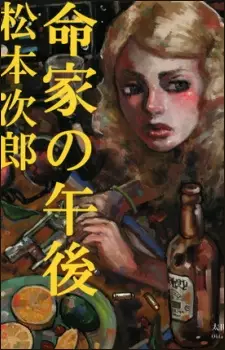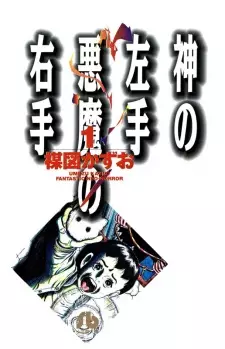Dec 18, 2008
Jiro Matsumoto's short story collection begins with a wry, kooky detailed love affair amidst a city in war-time. Our plucky author finds herself taking her neighbour's identity on a whim and embroiling herself with an unwitting revolutionist's assassination plan, and also his nether regions while she's at it. It's a Wong Kar-Wai style whimsical tale of fleeting lust, love and laughs.
The second story seems to be connected with the first solely by the war itself, but concerns itself with a stuffy man called Sergey who works for the intelligence department and begins his day by kicking a stranger with no panties out of
...
his loo. Things only get more exasperating for him when he's dragged along to a group date and subsequently gets obsessed with an Aryan blonde. This is kind of like The Conversation if Gene Hackman got more booty before his life turned to shit with paranoia and conspiracy theories, along with heavy shades of Orwell's 1984, not just because of the dystopic setting, but because of the heavy mood that comes along with doomed romance between cogs in an oppressive regime.
The third story is a western with a mean sense of black humour, torturing a thirsty man on the run by pissing on the desert ground next to him. As if that weren't enough it continually inflicts this misery on him until he's dependant on it, for this is a tale of bizarre magic and melancholy. The brilliance is in questioning who is crazy, the witch of the desert or the man who drinks her urine to stay alive.
The fourth story is about a natto-eating vampire which tells you by now that Matsumoto's writing isn’t trying to attain lofty heights of literature when he's captivating us with witty dialogue amid ambitious backdrops, but merely reflecting his humour while trying to pay the bills. The humour is such that if you're not laughing out loud by the time our plucky vampire is accosted by a big boobed woman to suck her dry and he desperately replies with "there isn’t any medical reason to suck any more of your blood!" then I guess this manga won’t be for you.
The fifth story is set in 17th century Japan following two samurai fleeing from a defeat; the obvious allusion is to the battle of Sekigahara and to the tale of Miyamoto Musashi as imagined by Eiji Yoshikawa; that is if Musashi and his buddy were both losers with no supreme fighting skill between the pair of them. The two cross paths with a newly orphaned girl and plan on selling her because you just can't go home empty-handed after you got your arse handed to you by Ieyasu Tokugawa’s army. Because neither are like Miyamoto Musashi, they get caught pretty quickly and Matsumoto's humour keeps things lively but this tale also has just enough poignancy to keep it relevant and justify using the battle of Sekigahara as a backdrop.
Even though the art on the surface appears nonsensical and as if it were doodled in five minutes, it's actually quite detailed and staged very well, with nice pay-offs and you even get the sense that you're reading an adaptation of some random French new wave film (or Russian as Matsumoto quips in the afterword). If you're wondering why I keep referencing films in this review its because that's how good Matsumoto's writing is, its not bound by manga form, but purely intent on good storytelling wherever the author's depraved imagination leads it.
Reviewer’s Rating: 10
What did you think of this review?
Nice
 55
55
Love it
 0
0
Funny
 1
1
Confusing
 0
0
Well-written
 0
0
Creative
 0
0Show all

 56
56


.png)






















